Absent Voter Lists Go Live
- 24th February 2022
The Worcestershire Absent Voter lists have now been transcribed by our wonderful team of volunteers. Hazel, Hazel, Jennifer, and Luke have worked for many years to complete this task for us, including from home during lockdown. Part of the electoral registers, these lists are an invaluable research tool, and can now be made more widely available to researchers.
The Absent Voter lists show the names, addresses and service details of men (and even a few women) who were absent when the electoral register was compiled, because they were serving during the First World War.
The project created transcribed lists of absent voters for the whole of Worcestershire for 1918, as well as for Spring and Autumn 1919. Customers can now access these lists online through the Archive Collections page of our website. The information can be used in research without the need to visit and open the original records.
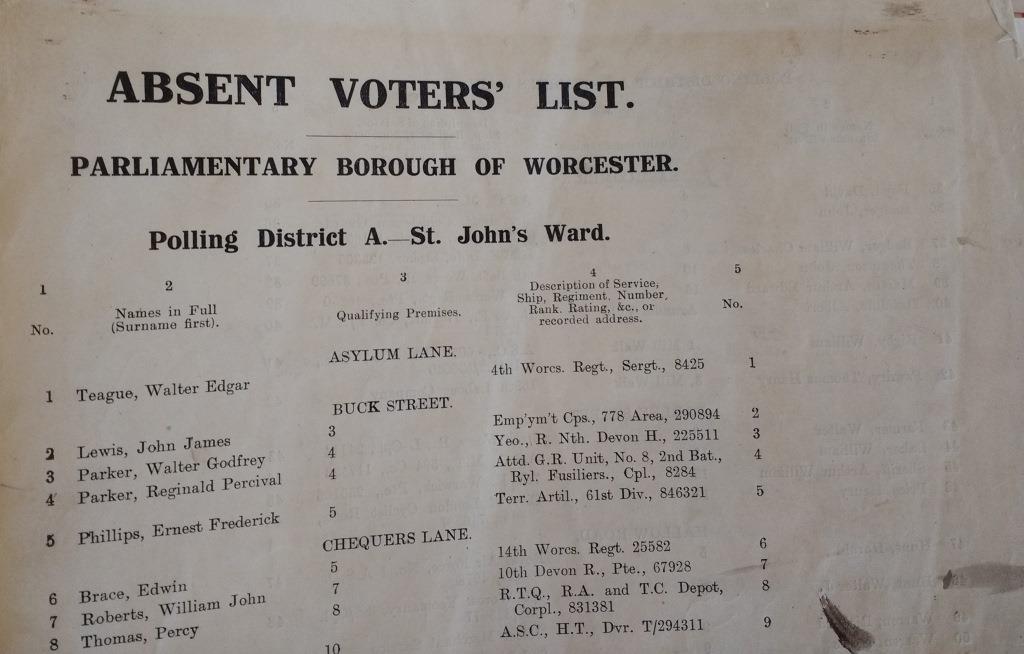
One of our volunteers transcribing the lists noted the lengths of the absent voter lists “did emphasize just how many people in a street were involved, and aren’t we lucky now that we don’t have to go to war”.
Digitised copies of the Absent Voter lists now appear online via Ancestry along with electoral registers for Worcestershire where they can be searched by an individual’s name, so why are these transcribed absent voter lists also useful?
Whether you are searching for long-lost family, your house, street or neighbourhood, military history or strangers with an interesting story, this resource allows you to search easily at the touch of a button. Here are some ideas of how these lists could be used:
- Are you looking for family in a wider search than one individual?
- Are you interested in people who lived in a particular house or street?
- Perhaps you are looking at military history from the First World War? You could search for the regiment or battalion, or their role or location, or look through the pages at the different roles and battalions listed.
- This resource can be used to learn more about women during the war by scanning down the pages for a female name, or searching for ‘nurse’ or ‘sister’ (like the one from Lower Wyche, Malvern) but don’t forget they did other occupations too.
- You might even use these lists to find some unusual baby names. We particularly liked Stratford, Neighbour, Worthy, Berkeley, Osbert, Decimus, Hezekiah, and Ughtred.
- You might like to research links within families, or follow individuals over the period to trace the slow return to normality as individuals return from war.
- Or perhaps you would like to just see where the information leads you.
Here are some of our favourite findings so far:
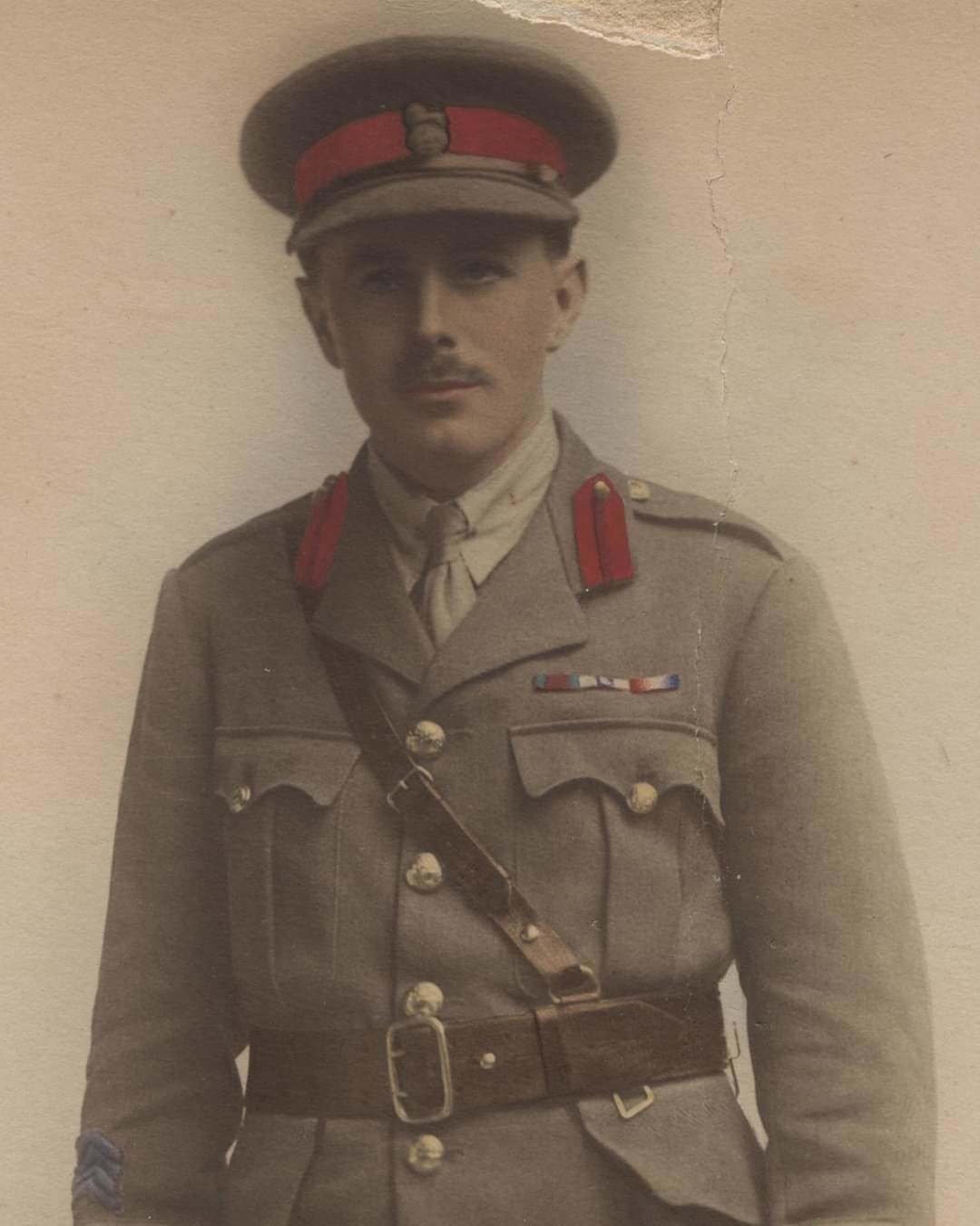
Reginald Coldham Knight
‘Temp Lieutenant’ Reginald Coldham Knight from the Tank Corps was an absent voter in Kidderminster. He was awarded a Bar to the Military Cross (MC) in the 1918 Birthday Honours by King George V and appears on a list published in The London Gazette. In 1919 he was awarded the Distinguished Service order, now at 5th Brigade headquarters for the Tank Corps. After the war he moved to Essex. Further research on this gentleman can be found here.
Thomas George Watts of Wolverley on the Kidderminster list was a Company Sergeant Major for the army gymnastic staff. William McGowran of All Saints, Evesham was also with Army Gymnastic Staff. Established in 1860, the Royal Army Physical Training Corps kept the British Army “Fighting Fit and Fit to Fight”. Each of its members was a physical Training instructor and they were attached to every major unit of the British Army.

McGowran on the Autumn 1919 Absent Voter list for Evesham
Charles Pagett from Imperial Avenue Kidderminster was stationed in Russia with the YMCA. The YMCA followed soldiers to the front line across the globe alongside the Royal Army Medical Corps and Red Cross in hospitals and convalescent camps, including here in Worcestershire.
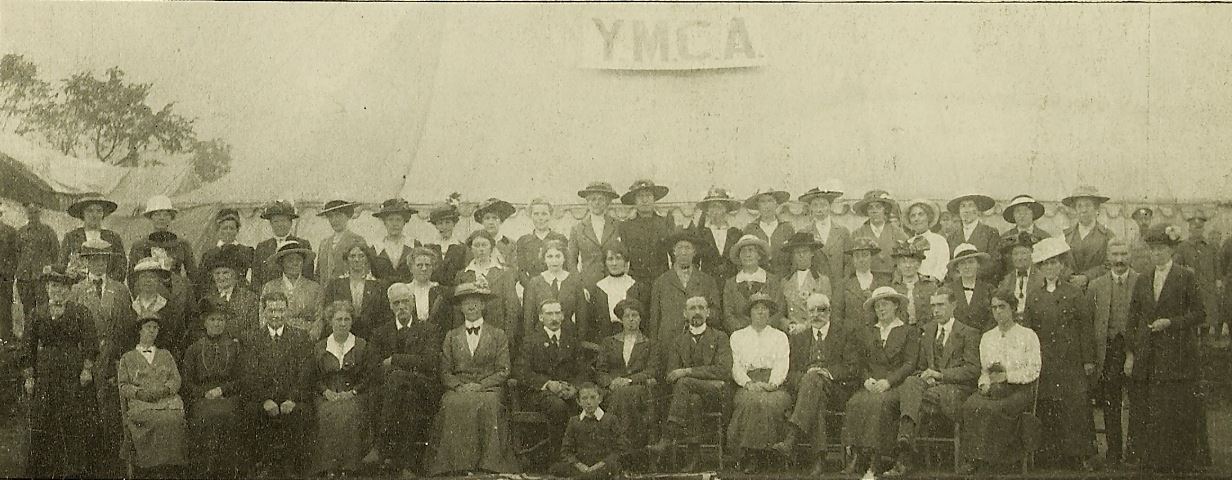
Photograph of local YMCA members at Malvern from Berrows Worcester Journal photographic supplement 30 October 1915
Several absent voters were musicians. Frederick Parker of Long Acre Kidderminster was a bandsman with the 14th Worcester’s, Ernest Bowen of King Street, Stourbridge a bandsman with 21st Midlands Battalion Rifle Brigade and Frederick Walter Meers of Oldbury who was a trumpeter.

Frederick Meers on the 1911 census © Crown Copyright
There were several men stationed with the Royal Army Medical Corps, including Army Surgeon Arthur Charles Oldham, Private Charles Dobbins of Kidderminster, and Arthur Firth previously working at Barnsley Hall Asylum.

Firth on Autumn 1919 Absent Voter List for Kidderminster
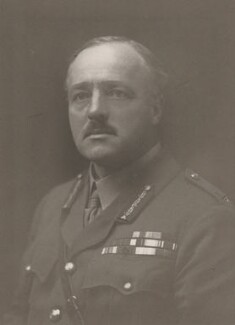
Wilfred Spedding Swaby 1919 from National Portrait Gallery
It was interesting to see the different regiments that were joined by men of Worcestershire. While Albert Lockley of 17 Franchise Street Kidderminster was listed at 38 of the same street), some men served with exotic sounding corps like Gunner Thomas Ward of Oldbury with the 5th Camel Corps, Hubert Archibald Overington with the Australian forces and Dennis Morris of Wollaston with the 9th Canadians. Richard Westmacott of Fladbury near Evesham was listed as a captain with the “Central Indian Horse, now en route to India to command Infantry Battalion”. The Malvern absent voters list includes Wilfred Spedding Swabey (or Swaby) who served as Director of Supplies and Transport in Italy, for the A.S.C.. Swabey, born in Aspley Guise, Bedfordshire, probably didn’t live in Worcestershire, having served with the army since 1892, but his wife Maud moved there during the war so he is shown as a local Absent Voter. The couple moved to Dulwich in London by 1922.
Some interesting roles listed were William George Adams, a Signaller on HM Submarine U.141, Butcher Joseph Hodgetts, and 3rd Craftsman for the Sherwood Foresters Charles Partridge. Daniel Neems from Grimley near Worcester was a lieutenant with the A.S.C., Forage Department and Gordon Wallace Cox of Malvern Link was captain with the 31st Punjab. William Henry Stephens of Powick was a Naval Engine-Room Artificer with H.M.S. “Attentive II.”
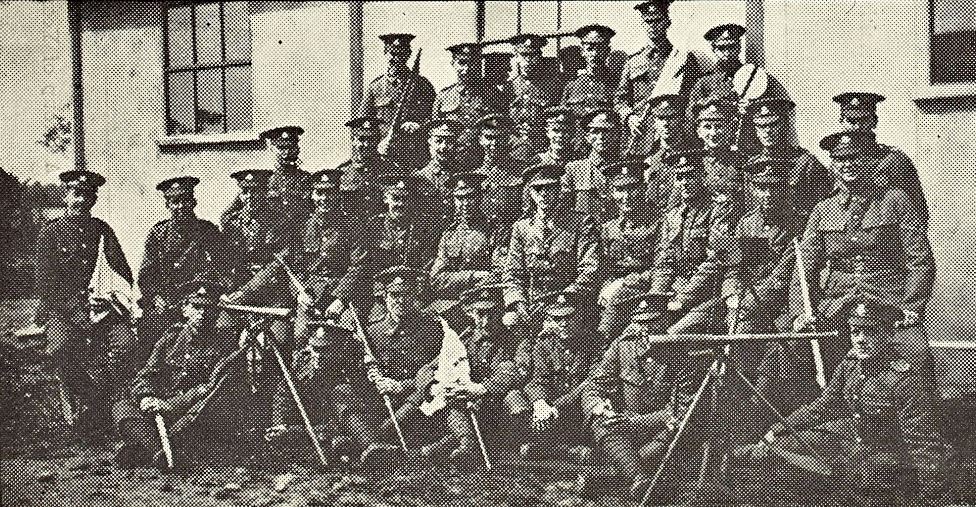
Photograph of Worcester signallers from Berrows Worcester Journal photographic supplement 11th August 1917
We found some women listed, including Ada Garbett of Mamble Road in Stourbridge and Minnie Gertrude Smith a Nursing Sister from Belmont Road, Wollescote. Mary Hartwright of Eldersfield served with the British Red Cross and Mary Elizabeth Williams of Malvern Wyche with the “Tem” Nursing Association in France. Sarah Brunt, of Birchley Court, may have been nursing since she later became a midwife in nearby Tenbury. Meanwhile, May Edwards of Great Malvern served with the Women’s Army Auxiliary Corps, who were female volunteers serving alongside their male counterparts in France.
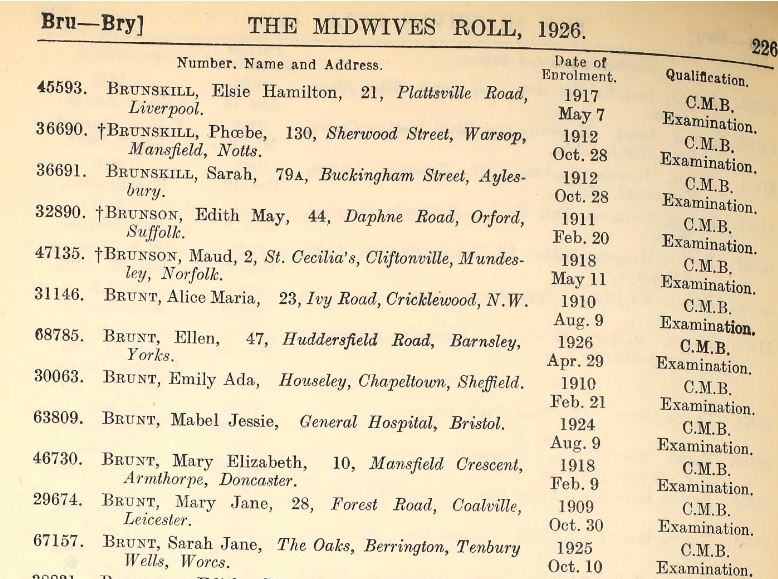
Sarah Brunt on the 1923 Midwives Roll
We found instances where brothers served together. Henry (born 1900) and Robert Benjamin Pither (born 1895) from Hallow both served onboard H.M.S. “Cornflower” an Arabis-class sloop of the Royal Navy. By 1921 they had both returned to Hallow. Meanwhile, brothers Alfred and George Reginald Phillips from Rock both served with the Queens Own Hussars.

Photographs of Henry and Robert Pither and their brothers from Berrows Worcester Journal photographic supplement 4th August 1917
We enjoyed transcribing the Absent Voter lists and learning about some of the individuals listed and we hope some of these interesting stories will inspire further research. This fantastic resource is now available online, so please do let us know what treasures you are able to unearth.
If you are interested in helping with similar volunteer projects with the Worcester Archives please do contact us for more details.
Post a Comment